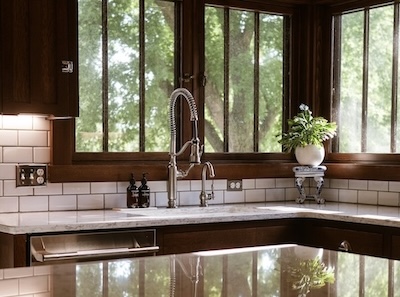Are you expecting your home to sell over asking? Or waiting for the housing market to crash before you make a move? Here are some of the most common misconceptions about the real estate market today.
Buyer Misconceptions
- You need a 20% down payment
Having the spare capital to put down 20% is great but certainly not required. There are programs where you need as little as 3.5% down (or less) and some of the closing costs can be covered too. Keep in mind; you still need cash for inspections and earnest money.
- Getting pre-approved will hurt your credit
Pre-qualification is a soft hit on your credit causing absolutely no impact. However, applying for pre-approval can drop your score by one to five points. Multiple pulls in a short period of time are considered one hard hit. If you’re shopping for mortgages, do so within a two-week window to lessen the impact.
- I should wait until home prices fall to buy a home
Buying a home right now seems risky, but waiting has its risks too. There’s no guarantee prices will fall significantly and it could take a while if they do. If you’re renting, you’re facing some of the fastest growth in rental rates on record. Then there is the issue of inventory. Since many homeowners refinanced their mortgage rate at historically low levels they aren’t interested in moving anytime soon. As long as inventory remains low, competition remains high, and prices will likely flatten over time instead of dropping significantly. Waiting could mean you’re missing out.
Seller Misconceptions
- List at a higher price for bargaining room
On average, homes will bring real market price. Asking that additional 10% is more likely to cause the home to stay on the market longer, generate less activity and interest, and ultimately sell for less than the market price. However, a lower-priced home will attract more attention from a greater number of buyers. In a competitive housing market, this could lead to interested buyers striving to outbid one another for the home. The end result could be getting offers for more than you asked for in the list price. Take a look at the comparable sales your agent provides and list your home accordingly.
- You’ll recoup all of your home improvement costs
Yikes. Don’t expect to see a 100% return on your remodeling investment. That said, some upgrades can add significant value to the price of your home. The most recent analysis by the National Association of Realtors cited that refinishing hardwood floors, installing hardwood floors, and upgrading insulation returned 100% or more of their cost. However, adding a new primary bedroom suite only offers a return of 56% of the cost.
- List your home with a “neighborhood expert”
Sellers often seek a listing agent who already has a buyer for their home overlooking the reality that a buyer’s agent represents their buyer. This can create a conflict in representation or eliminate competition for the seller’s home. Work with an agent whose process will attract as many professional agents as possible with the most qualified buyers for your home. Over 43% of buyers begin their home search online. For the most part, the neighborhood expert markets their properties the exact same way a non-expert does. The real difference in agents that matters tremendously is in their professionalism, intelligence, and responsiveness. Interview more than one agent and find out what sets them apart from your “neighborhood expert.”
If you have any questions, please call or message Christen Bond at (205) 612-9432 or cbond@raypoynor.com.
.gif)





.gif)



